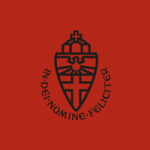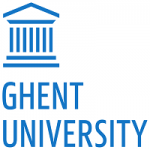项目介绍
COURSES:
The department requires a total of 15 courses to be completed by students by the end of the sixth semester (only 1 course may be an audited). Students normally take 3 or 4 courses in each of the first 4 semesters of study. In the fourth or fifth semester, 1 of the courses may be audited. Courses chosen for the fifth and -eventually- sixth semesters should be particularly relevant to the projected topic of the dissertation. Students typically take 2 courses in the fifth semester and 1 course in the sixth semester, including a reading course.
Students may choose to take 2 or 3 of the 15 required courses in other departments (with an absolute maximum of 5 outside the department). Thus, at least 10 of the 15 courses must be taken in the department. Of these department-based offerings, students are required to take courses in each of the five fields (Medieval/Early Modern, Colonial, Modern Latin American, Modern Peninsular, and Luso-Brazilian). One of the 15 required courses should be a course on theory (critical theory, literary theory, cultural theory), which we will make every effort to offer at least every 2 years, and which can be taken in another department.
Students specializing in Hispanic literatures and cultures are required to take at least one 500-level course taught in Portuguese, and, likewise, students focusing on Luso-Brazilian topics are expected to take at least one 500-level course taught in the Spanish language.
Colloquia and Lectures
The department offers a very lively intellectual climate, with scholarly colloquia, public lectures, workshops, and related events. Graduate student attendance of such events is strongly urged as they provide valuable insights into the scholarship being produced in the respective fields as well as opportunities to engage with leading scholars and participate in events as co-organizers, respondents and speakers.
Students are encouraged to selectively participate and present papers at professional meetings in the United States and abroad. Given the demands of the program, however, the Department advises that students favor publications in professional journals over conference papers.LANGUAGE(S):
Reading proficiency in a foreign language that is relevant to the student’s field of specialization is required. Since we are a Department of Spanish and Portuguese, Spanish and Portuguese are not considered foreign languages.
All language exams must be completed by the end of the fourth semester (before the General Examination) and are normally given by the Department once per semester (usually in November and April). Students may also fulfill these requirements by enrolling in an appropriate language course, approved by the Director of Graduate Studies.PRE-GENERALS REQUIREMENT(S):
Students will receive a reading list of 50 books that they must read before the general exam.GENERAL EXAM:
By the end of the second semester, students are expected to declare their primary field of specialization, choosing one of the five possible concentrations:
- Medieval/Early Modern
- Colonial
- Modern Latin American
- Modern Peninsular
- Luso-Brazilian
The general examination consists of two parts.
Part I
This part of the exam will cover a 50-book reading list that encompasses the 5 fields. The goal of this part is to test the student’s understanding of some of the most indispensable works in each one of the five fields.
This part of the exam will take place at the end of April in the fourth semester of enrollment. The format of the exam will be take-home and open-book. Students will be asked to formulate responses to two questions per field over the course of three days with, at least, a day of rest in-between the examination of the respective fields. The exam will take place over the course of about three weeks.
Part II
This portion of the General Examination will be in the student’s area of specialization. It will be taken in the month of January in the fifth semester of enrollment.
For this second part, students will write a field statement, that is an academic essay fully addressing a relevant topic to the field in relation to their future research project. Each field statement will focus on a pressing topic or problematics, “a deep dive” within the student’s intended field of specialization. Essays are expected to encompass no less than 10,000 words (bibliography excluded). General guidelines will be provided. Essays are expected to be developed throughout the semester and will be structurally connected to the subsequent preparation of the dissertation proposal, being however a separate exercise.
As a first step in preparation for this part of the Generals, by the end of the second year the student will identify two faculty members in the field of the student’s primary area of specialization from among the five fields. One of these two faculty members will be the dissertation advisor, whom the student should choose no later than June of the second year. The dissertation advisor is required to be a core member of the Spanish and Portuguese Department faculty. External co-advisors will be permitted only in extraordinary cases and with the approval of the primary advisor and the DGS.
The field statement will be based on a tailor-made list devised by the student in consultation with the two faculty members. The list’s final version, approved and signed by the two faculty members, must be submitted by the student to the DGS and the Graduate Administrator by August 30 of the second year.
It is expected that the list will include at least 50 entries. The list should be divided into sections (e.g., theoretical, critical, historiographic, and/or archival sources). The number and content of the sections will depend on the field of specialization and the topic of the dissertation. All these sections will be relevant to the field statement’s preparation.
Essays in each field corresponding to Part I will be read by at least one faculty expert in the field who will communicate a grade for each field to the DGS and the Graduate Administrator.
Field statements corresponding to Part II of the general examination will be read by two faculty members (likely student’s committee), who should agree on a grade for each question and a global grade for the entire examination. These should be communicated to the DGS and the Graduate Administrator.
TEACHING:
Students are normally appointed as assistants in instruction (AIs) at some point during their program of study. The classroom experience is of great value for the development of teaching skills. The success of our department in placing its graduates is closely linked to their training and experience in this essential professional activity.
Spanish students will teach during the fall semesters of their second, third, and fourth years (five to six hours of elementary or advanced language or literary instruction). Portuguese students may be asked to teach either in the fall or in the spring semester of their second, third, and fourth years, depending on departmental teaching needs.
Graduate students will be assigned to teach specific courses based on previous course evaluations, seniority, appropriateness of field, number of incompletes, and the discretion of the professor in charge of the course. This applies to all levels of teaching, from language courses to precepts.
Students will teach during the fall semesters of their second, third, and fourth years (five to six hours of elementary or advanced language or literary instruction). This will give them time to concentrate on their graduate seminars in their first year, and will also relieve the pressure during the fourth semester, when they will be preparing for their general examinations.
Besides language teaching, graduate students may have the opportunity to teach in precepts (discussion sections) in literature/culture courses or assist faculty with the teaching of summer study abroad courses or Global Seminars. If circumstances permit and a student’s area of study is closely aligned to a course, a student may be invited by a faculty member to teach a precept, and in such unique cases the following policies will apply:
- Graduate students invited to be preceptors for courses of 24 or more students will be relieved of their language teaching for that academic year. However, the student must actually lead their own precept to receive this course “relief”; they cannot, for instance, simply grade for a professor. Princeton in Argentina/Brazil/Portugal/Spain, Princeton in Cuba, and Global Seminars taught by SPO faculty with the help of the graduate student will also allow participating graduate students language teaching relief.
- Precepting can only count in lieu of language teaching if the course is within SPO, for a SPO professor’s courses (say, located in PLAS or IHUM), for Princeton in Cuba, or for a SPO-led Global Seminar. Courses taught for other institutions cannot substitute for required teaching or precepting in SPO.
- If a student uses summer teaching for a Global Seminar or for Princeton in Argentina/Brazil/Portugal/Spain to count as that academic year’s teaching, that student will be compensated in the summer and will receive only the regular fellowship during the academic year.
- If a proposed course does not achieve a minimum of 18 students in some advance of the semester’s inauguration, the precept will be eliminated and the student will be reassigned language courses when possible.
- Every effort will be made to ensure that these opportunities are available for a maximum number of students. However, occasionally a student may serve as a preceptor on more than one occasion.
The department may elect to provide other forms of support in fulfilling the teaching requirement, e.g., languages tables or tutoring in lieu of teaching when necessary.
Students on external fellowships will also be required to teach, at the department’s discretion. All graduate student classes will be visited at least once a semester by the head of the course they teach. After the visit, the head of course will meet with the student to discuss performance, offer suggestions and, if necessary, arrange for a follow-up visit. The head of course will also complete a departmental teaching evaluation form, which will be placed in the student’s file.
While these teaching evaluations are confidential and will not be communicated verbatim to a prospective employer, it should be remembered that teaching is an essential part of the student’s training, and the department is usually asked to comment on the student’s teaching performance.DISSERTATION AND FPO:
A draft of student’s dissertation proposal is expected to his or her advisor by March 15th of the sixth semester of enrollment.
The articulation of the dissertation topic and the methodology that will be employed in its writing will be made to the faculty in May (after Dean’s Date) of the third year, at the end of the sixth semester, in a 20-minute presentation. It will consist of: (1) a detailed oral presentation of the dissertation topic in the language in which the dissertation will be written, and (2) an examination by the faculty on this proposal and its implications. The faculty will make suggestions to the student, either approving the proposal as it stands, or requesting revision and resubmission. (At this time, the department may also decide to grant the student a terminal Master’s degree.)
The student must submit a written version of the proposal (double-spaced) to the Director of Graduate Studies (DGS) for transmission to the faculty no later than one week before the public presentation. This document must include an explanatory essay indicating what the thesis proposes to study and why it is important to the field. In addition, it should detail a chapter-by-chapter outline of the proposed thesis and should include a substantial bibliography on the dissertation topic. The presentation should not be a mere summary of the written document—which faculty will already have read—but might explore the process of arriving at the project, methodological challenges and strategies, and analysis of some of the objects/texts/images to be analyzed in the project. The proposal must be double spaced and written in 12 point Times New Roman font. It should be no more than 15 to 20 pages, but may not exceed 20 pages (5,000 words), exclusive of the bibliography. This page number limit is to be adhered to strictly.
After the public presentation of the proposal, the Director of the Graduate Studies (DGS) will communicate the faculty’s comments to the student. If judged unacceptable, the proposal may be revised and resubmitted one time only.
The Thesis-Writing Workshop
In the fall of the fourth and fifth years, students writing their theses may participate in an informal series of meetings with faculty members to discuss aspects of dissertation research, writing, and structure.
The Language of the Dissertation
Students wishing to write their dissertation in Spanish or Portuguese rather than in English must obtain the prior approval of the DGS, who will consult with the dissertation director. If permission is granted, an explanatory letter from the thesis director and a formal request by the DGS will then be sent to the Deputy Dean of the Graduate School, who normally approves the request. An overview of the dissertation, written in English, must also be included with the dissertation.
Advising and Scope of the Dissertation
The dissertation committee will consist of one advisor and two additional committee members. The dissertation advisor is required to be a core member of the Spanish and Portuguese Department faculty. External co-advisor will be permitted only in extraordinary cases and with the approval of the primary advisor and the DGS.
The dissertation advisor will usually be the first examiner of the student’s General Examination.
The composition of the dissertation committee is a matter to be arranged by the student with the advisor.
Timely progress on the dissertation is a prerequisite for readmission and for funding. Before graduate students are hired as preceptors or research assistants by faculty members, their dissertation advisor must agree that such employment will not significantly delay completion of the dissertation.
The scope of the dissertation should be such as to allow for its completion in two and a half years. Both the director and the second reader will be kept up to date on the student’s progress, and will read, judge, and critique chapters as they are produced. Both the director and the second reader should approve a final first draft before the dissertation is produced in its final form.
Students should submit their dissertation in its final form within five years of having completed the General Examination. After that time, according to Graduate School policy, the department is under no obligation to direct or receive a dissertation, and does so at its own discretion.
As an example, if a dissertation contained four chapters, the optimal timetable would be as follows:
Introduction, July of 3rd year;
Chapter One, December of 4th year;
Chapter Two, May of 4th year;
Chapter Three, October of 5th year;
Chapter Four, February of 5th year;
Final Version, beginning of May of 5th year.
Final Public Oral Dissertation Defense
There are at least three principal examiners, all of them normally members of the Princeton faculty at the rank of assistant professor or higher, at least two of whom have not been principal readers of the dissertation. At least one of the examiners must be from the student’s home department. An examiner from another institution may participate in the FPO if s/he fills a gap in expertise that cannot be covered by any other professor at the university. Such examiner needs to be first approved by the DGS and, then, by the Graduate School. For more information, see https://gradschool.princeton.edu/academics/degree-requirements/graduate-….
The FPO examination consists of the following three parts: 1) a brief (thirty-minute) presentation by the candidate of the dissertation in English, Spanish, or Portuguese; 2) an examination by the three principal examiners; and 3) questions by other faculty in attendance. The exercise usually lasts an hour and a half. The Final Public Oral is open to all members of the University community, and other graduate students are welcome to attend.
联系方式
电话: 609-258-3000相关项目推荐
KD博士实时收录全球顶尖院校的博士项目,总有一个项目等着你!






